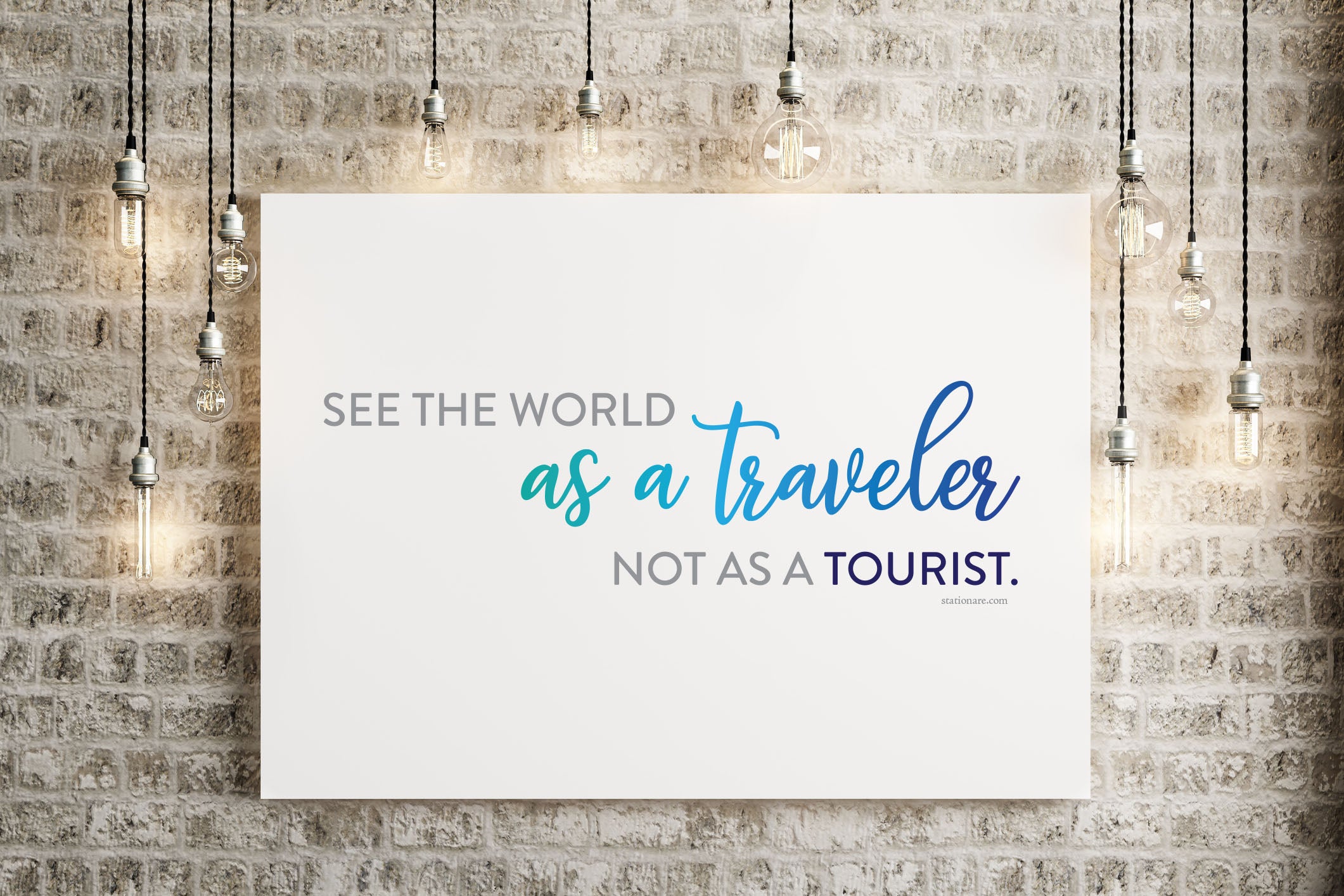When was the last time you visited a new city, soaked in its culture, tasted its food, and really connected with its people? In a world filled with package tours and guidebooks, the mantra “Be a Traveler, Not a Tourist” resonates deeply with many looking for genuine experiences. In this article, we’ll explore this philosophy, compare the nuances between being a traveler and a tourist, and provide you with actionable tips and destination highlights to enrich your journeys.
Understanding the Difference: Traveler vs. Tourist
The distinction between a traveler and a tourist is not merely semantic; it reflects fundamentally different approaches to experiencing a new place.
What Is a Tourist?
Tourists typically engage with their destinations through a commercial lens. They often follow structured itineraries, visit famous landmarks, and stick to popular attractions. While there is nothing inherently wrong with this, tourists usually miss out on the deeper, authentic experiences a place has to offer.
What Is a Traveler?
Travelers, on the other hand, seek to immerse themselves in the culture, lifestyle, and traditions of a destination. They opt for local food, engage with residents, and explore off-the-beaten-path attractions. Travelers often prioritize experiences over checklist tourism.

A Comparative Analysis: Travelers vs. Tourists
| Characteristics | Traveler | Tourist |
|---|---|---|
| Approach to sightseeing | Explores local culture and hidden gems | Visits popular landmarks and attractions |
| Accommodation choices | Stays in guesthouses, hostels, or local rentals | Chooses hotels and resorts |
| Food experience | Tries street food and local restaurants | Eats at chain restaurants |
| Interaction with locals | Engages with residents and learns from them | Minimal interaction with locals |
| Travel mentality | Open to unexpected experiences | Follows a strict itinerary |

Why Choose to Be a Traveler?
There are many compelling reasons to embrace being a traveler:
- Deeper Connections: By immersing yourself in local life, you can establish connections that enrich your experience.
- Unique Experiences: Travelers often discover attractions or events that tourists miss.
- Personal Growth: Travelers encounter challenges that can foster personal development and resilience.

Personal Travel Experiences: Embracing Authenticity
Throughout my travels, I have had the good fortune to experience moments that truly resonated with the philosophy of being a traveler. In Thailand, for example, while others flocked to popular beaches, I ventured into the small fishing villages where the locals still lived as they had for generations. I remember sharing a meal with a family who welcomed me into their home, teaching me how to cook traditional dishes while sharing stories about their lives.

These moments were not part of any itinerary; they were opportunities that arose from being open to new experiences. Such interactions are often what stay with you long after a trip ends.
Travel Tips: How to Be a Traveler, Not a Tourist

1. Research Like a Local
Instead of relying solely on guidebooks, explore local blogs, social media influencers from the area, and community forums. Platforms like Instagram and Pinterest can reveal lesser-known spots.
2. Use Public Transportation
Using local transport, like buses or trains, can provide a deeper insight into daily life in the area. You’ll get a glimpse of how locals navigate their cities.

3. Try Local Cuisine
Skip the chain restaurants and seek out street vendors and local eateries. Not only are they often more affordable, but they also serve the most authentic versions of regional dishes.
4. Attend Local Events or Festivals
Search for local events, markets, or festivals during your visit. Participating in these occasions can immerse you in the culture and create unforgettable memories.

5. Stay Longer in One Place
Consider spending more time in fewer locations rather than rushing through a long itinerary. This allows for a richer understanding of the local culture.
6. Engage with Locals
Don’t be shy! Strike up conversations with locals. Ask for recommendations, stories, or share experiences. This can lead to amazing friendships.
Destination Highlights: Where to Travel Authentically
1. Kyoto, Japan
Known for its beautiful temples and traditional tea houses, Kyoto is a place where you can truly connect with Japan’s heritage. Try staying in a ryokan (traditional inn) and participating in a tea ceremony.
2. Lisbon, Portugal
With its vibrant neighborhoods and rich history, Lisbon invites you to explore its streets on foot. Don’t miss the Fado music in local bars; it’s a soulful experience.
3. Oaxaca, Mexico
This city is famous for its culinary traditions and colorful markets. Engage with artisans and learn about their crafts while tasting some of the best mole and mezcal.
4. Marrakech, Morocco
Explore the souks, engage with local merchants, and experience Moroccan hospitality in a riad. Also, consider a day trip to the Atlas Mountains for stunning landscapes.
Pros and Cons of Being a Traveler
Pros
- Authentic experiences
- Memorable interactions with locals
- Greater appreciation for culture and traditions
- Unique stories and adventures
Cons
- Potential language barriers
- Less predictable itineraries
- Sometimes less comfort
- Greater need for adaptability
FAQs About Being a Traveler
Is it safe to travel like a local?
Generally, yes! However, always do your research on the specific country or area. Stay aware of your surroundings and trust your instincts.
What are some tips for engaging with locals?
Learn a few phrases in the local language, be respectful, and show genuine curiosity about their lives and culture.
Can I still enjoy popular attractions as a traveler?
Absolutely! Just consider visiting during less busy times and combine those visits with local experiences around the attractions.
How can I track my travel experiences?
Journaling, photography, or even blogging can help you document and reflect on your travels. It allows for sharing and remembering those unique moments.
Conclusion: Embrace Your Inner Traveler
Being a traveler opens up a world of opportunities for connection, discovery, and growth. By choosing to explore authentically, you’ll not only enrich your own experiences but also contribute positively to the places you visit. So pack your bags, open your mind, and embark on adventures that go beyond the ordinary.